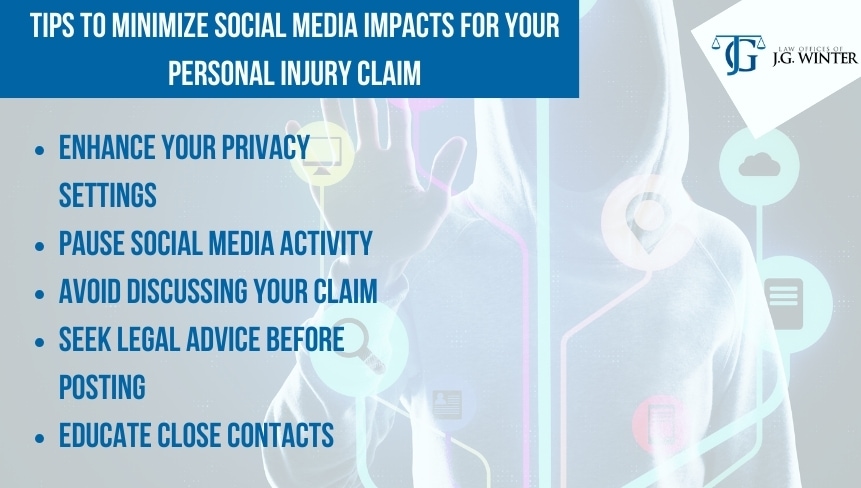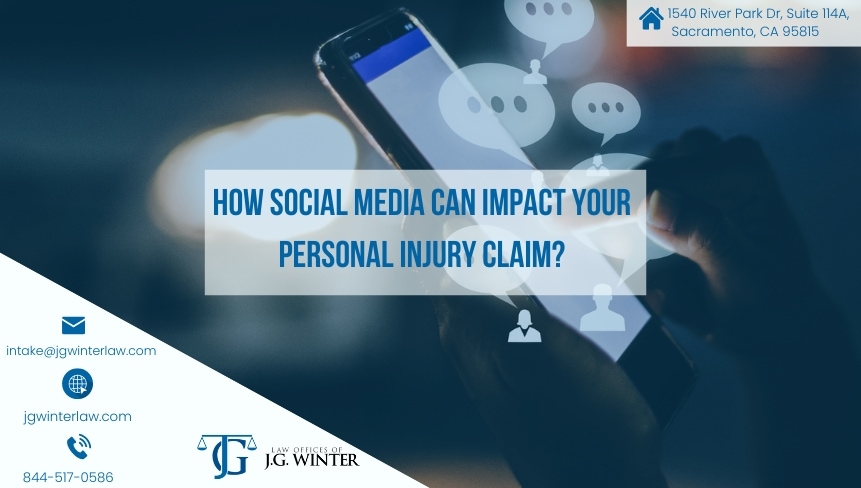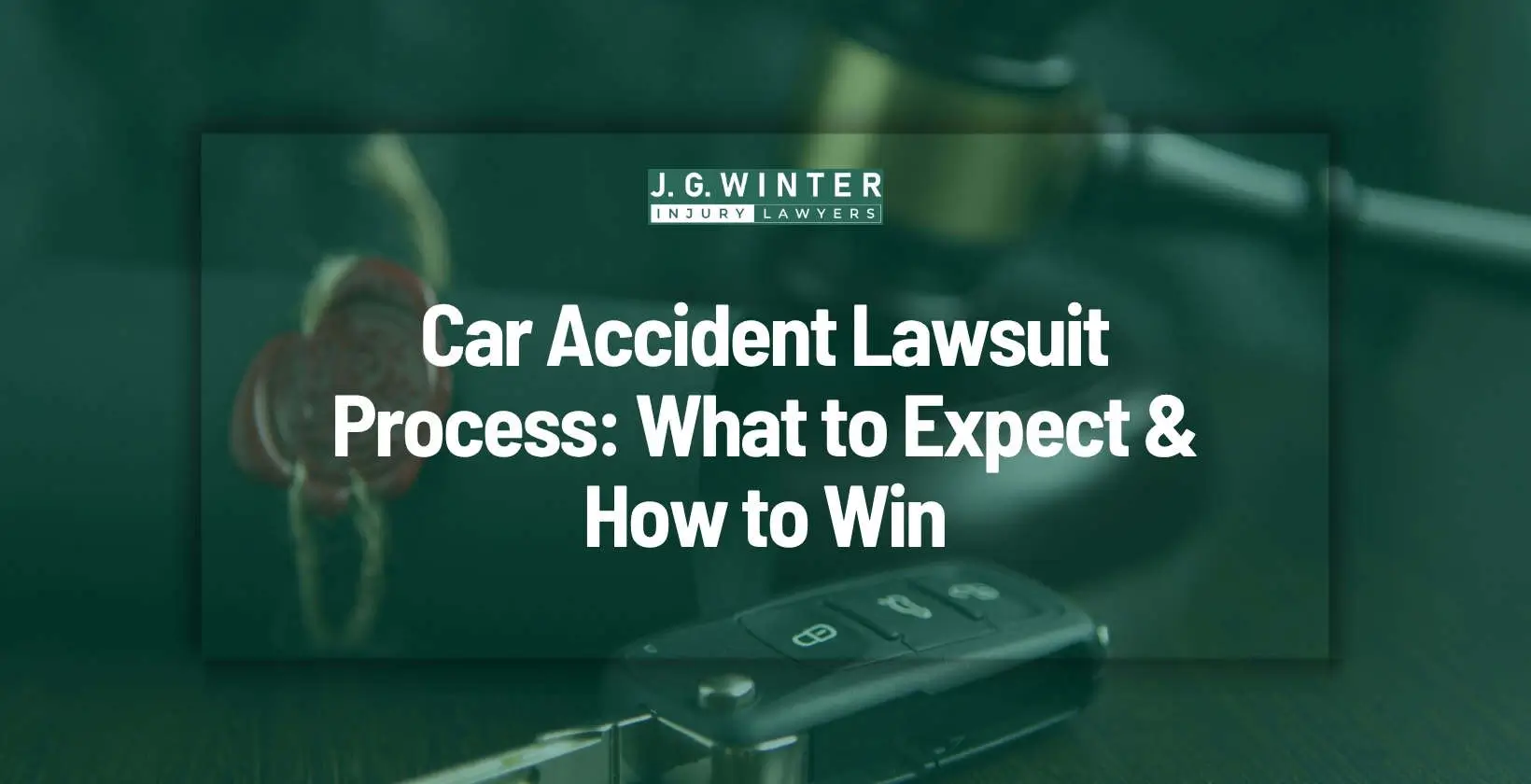Social media is everywhere, from sharing moments with friends to catching up on news. But when you’re in the middle of a personal injury claim, what you post online and how social media can impact your personal injury claim is a bigger question. Lawyers and insurance companies might look at your social media to find anything that could question your claim. You must understand the effects of social media on personal injury claims. J.G. Winter Law helps you navigate these challenges. Our personal injury lawyers ensure you don’t affect your case with your social media posts but rather support your path to getting the compensation you deserve.
Social media in personal injury claims: Understanding the risks
Social media significantly affects personal injury claims in both good and bad ways. It can serve as a platform to gather support and share experiences with others who have gone through similar situations. However, it can also negatively affect your claim.
Insurance companies and defense attorneys often review social media profiles, looking for evidence that could question the severity of injuries or contradict statements you made during the claim process. For instance, posting photos of physical activities or check-ins at locations could inadvertently suggest that your injuries are not as severe as claimed. You must be mindful of your social media activity when involved in a personal injury claim.
6 Common social media mistakes that may impact your personal injury claim
You must be caution on social media during a personal injury claim. Opposing legal team can access the things you share online and potentially use them against you. Below are 7 common social media mistakes you shouldn’t make during the legal process.
1. Oversharing personal information
Sharing too much on social media during a claim can backfire. Even posts meant as updates for friends and family might give insurers evidence to argue against the severity of your injuries. Think twice before sharing details about your daily activities, health status, or recovery progress.
2. Discussing the claim or legal case
Mentioning anything about your case, interactions with your lawyer, or feelings about the legal process can undermine your position. Insurers might use your words against you, interpreting them out of context to challenge your claim.
3. Posting photos or videos that contradict injury claims
Uploading content that shows you being more active than your injuries should allow can be particularly damaging. For example, pictures from a hike or a family gathering where you seem physically fine can cast doubt on your injury claims, regardless of the actual context or your pain levels at the time.
4. Checking in at locations
Digital check-ins reveal more than just your location; they suggest your ability to engage in social and physical activities. They can be misconstrued to suggest you’re not as injured as claimed. It’s safer to forgo check-ins altogether while your claim is pending.
5. Accepting friend requests from unknown individuals
Insurance companies may send friend requests through fake profiles to access your private posts. Accepting requests from people you don’t know can inadvertently give them a look into your private life, which they could use to dispute your claim.
6. Using social media to vent or express anger
While feeling frustrated by your situation is natural, venting on social media can provide a skewed view of your mindset and intentions. Posts filled with anger or blame can be leveraged to question your motivations or credibility, potentially weakening your case.
Tips to minimize social media impacts for your personal injury claim

Social media can significantly influence personal injury claims. Below are effective tips to minimize the potential negative impacts of social media on your case.
- Enhance Your Privacy Settings: Set your social media profiles to the highest privacy level to restrict access to your personal information. It can prevent unintended audiences, including insurance adjusters and opposing legal teams from viewing your posts.
- Pause Social Media Activity: Consider taking a break from posting on social media while your claim is active. If abstaining isn’t feasible, critically evaluate the necessity and potential impact of each post before sharing.
- Avoid Discussing Your Claim: Refrain from mentioning any aspect of your personal injury claim online. It includes updates, opinions, or feelings about your case, recovery process, or interactions with legal professionals and insurance companies.
- Seek Legal Advice Before Posting: If you’re uncertain whether a post could impact your claim, consult with a personal injury attorney. A brief discussion can help you understand the potential implications and guide your social media use.
- Educate Close Contacts: Inform friends and family about the sensitivity of your legal situation and ask them to avoid posting photos, check-ins, or any information related to you without your consent. Their well-intentioned posts could inadvertently affect your claim.
Wrapping Up
The impact of social media on personal injury claims cannot be overstated. While seemingly innocent, your online activity can significantly influence your case’s outcome. As such, exercising caution and discretion with your social media use during the process is crucial. Before posting anything that could be related to your claim or personal life, consider the potential repercussions.
Attorney Jeremy Gordon Winter helps you understand and manage the impact of social media on your personal injury case. Contact us today for expert guidance if you’re seeking comprehensive support for your personal injury claim.
FAQs
Can posting on social media affect my personal injury claim?
Posting on social media can significantly affect your personal injury claim. Insurance companies and defense attorneys may scrutinize your social media profiles for evidence that contradicts your claims about the extent of your injuries or damages.
What types of social media posts can negatively impact my personal injury case?
Posts that show physical activity that seems inconsistent with your injuries, check-ins that suggest you’re more active than claimed, and any comments discussing your case, recovery, or feelings about the accident can negatively impact your claim.
Should I deactivate my social media accounts after filing a personal injury claim?
While not always necessary to deactivate, it’s advisable to limit your social media activity and enhance your privacy settings.
Can insurance companies legally access my social media profiles?
Insurance companies can legally view any information you’ve shared publicly on your social media profiles. They may also attempt to access private posts through mutual connections or by sending friend requests.
What should I do if I’ve already posted about my accident or injuries online?
If you’ve already posted about your accident or injuries, talk to your personal injury attorney. They can advise you on whether you should remove the posts and how to proceed without negatively impacting your claim.




